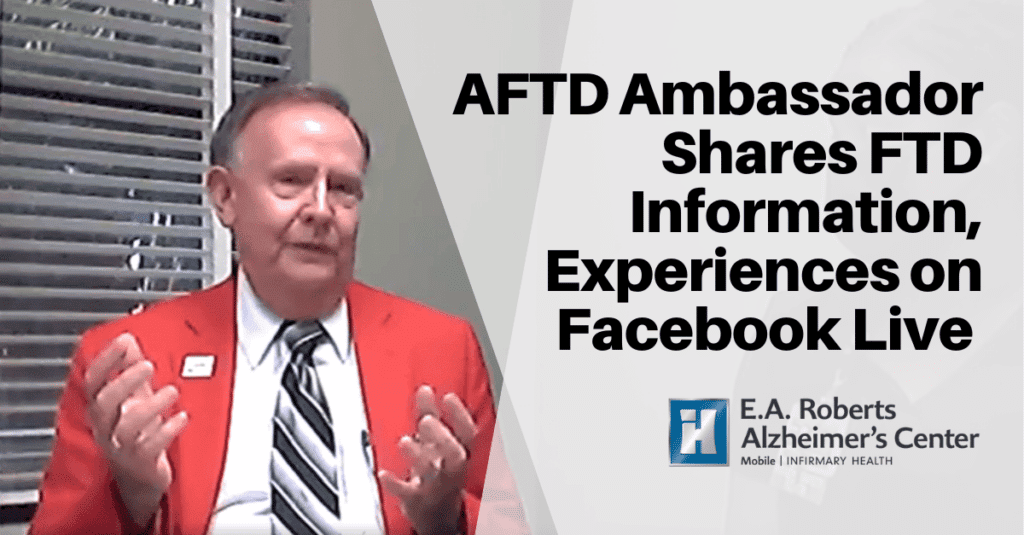AFTD Ambassador Shares FTD Information, Experiences on Facebook Live

AFTD Ambassador Jerry Horn recently took part in a Facebook Live event hosted by the E.A. Roberts Alzheimer’s Center to talk about FTD and share his firsthand experiences as a care partner for his wife.
For E.A. Roberts’s “What You Need to Know Wednesday” livestream, Horn talked to viewers about FTD and the various forms it can take. He also shared how FTD is a relatively unknown form of dementia that can affect people under 60.
“I have seen many situations in the past few years that I’ve been affiliated with AFTD where it affects families that still have young children in their home,” Horn said. “It has a great impact on finances, much more so than Alzheimer’s simply because of the time factor; it occurs in prime earning years for many families.”
Horn underscored how difficult it is to diagnose FTD due to its broad range of symptoms, as well as a lack of biomarkers.
Horn then shared his own experience as a care partner for his wife, Debbie, who was diagnosed with semantic variant primary progressive aphasia (svPPA).
“In my wife’s situation, when she was first diagnosed, she had been experiencing some word-finding difficulties, which probably began about five years before her diagnosis. It just wasn’t consistent enough for us to really pinpoint it and call it anything,” Horn said.
One day in 2014, Debbie had difficulty moving; her head seemed locked forward, and she couldn’t move her eyes to look around. Horn called for an ambulance, and after Debbie was evaluated at the hospital, the pair were recommended to a neurologist familiar with FTD. Debbie later received her svPPA diagnosis.
Horn noted how communication became difficult for Debbie, and how she would go long stretches without speaking. She also had difficulties with movement as her svPPA progressed.
Being an FTD care partner was tiring and stressful at times, Horn said. Through AFTD, Horn applied for and received a Comstock Grant to help alleviate his stress.
Self-care, Horn said, is essential to the role of a care partner.
“I tell this to my support group members all the time: you’ve got to take care of yourself first. If you don’t take care of yourself, who’s going to care for your loved one when you’re not able to?” said Horn.
AFTD offers Comstock Respite Grants to help relieve some of the stress and exhaustion that is all too common among care partners. If you’re a care partner and are interested in what a grant can do for you, visit the Comstock Grants Page to learn more and apply.
By Category
Our Newsletters
Stay Informed
Sign up now and stay on top of the latest with our newsletter, event alerts, and more…
